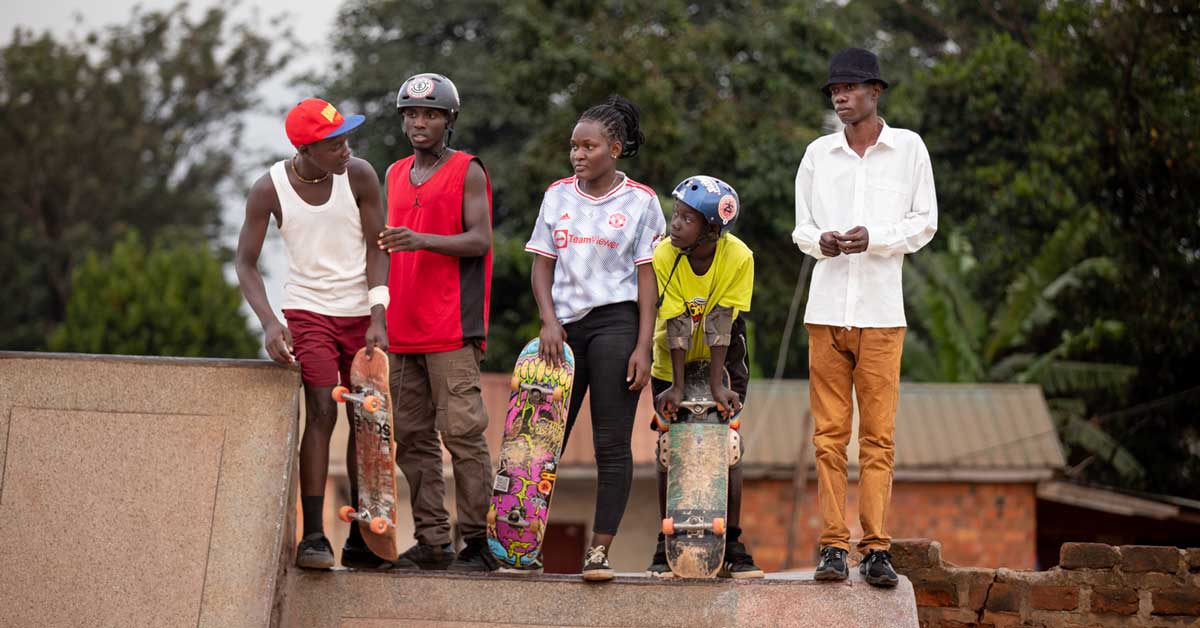To bring peace to the frontlines, we first need a proper understanding of what peacemakers do and how they do it.
There isn't currently a working definition for "peacebuilding" in dictionaries. And Charles Allen, director of partnerships for The Institute of Economics and Peace (IEP), says we can't properly center peacemaking in our rhetoric unless we establish a formal, recognized definition for it.
According to Allen, conflict remains the anchor points for telling stories of world history, while peace is simply a brief respite between wars. But peace is on purpose — it's not just a derivative of decreased conflict.
That's the difference between "negative peace" — the mere absence of violence — and "positive peace" — the deliberate creation of an environment optimal for human flourishing.
Peace is commonly framed as passive, but the institute aims to dissolve the dichotomy of war and peace, which disregards the conscious act of building peace.
IEP identifies attitudes, institutions, and structures in the world’s most peaceful countries to understand just what it takes to build peace. Peacebuilders can then use their framework to transform their communities and build and sustain positive peace.
Here's a quick rundown of the necessary components any community needs to create and sustain positive peace:
These are the eight pillars of positive peace, as defined by The Institute of Economics and Peace:
1. Well-Functioning Government
Delivers high-quality public and civil services, engenders trust and participation, demonstrates political stability and upholds the rule of law
2. Equitable Distribution of Resources
Equity in access to resources such as education, health, and, to a lesser extent, equity in income distribution
3. Free Flow of Information
Free and independent media disseminates information in a way that leads to greater knowledge and helps individuals, business, and civil society make better decisions.
4. Good Relations with Neighbors
Peaceful relations with other countries are as important as good relations between groups within a country. Countries with positive external relations are more peaceful and tend to be more politically stable, have better functioning governments, are regionally integrated, and have lower levels of organized internal conflict.
5. High Levels of Human Capital
A skilled human capital base reflects the extent to which societies educate citizens and promote the development of knowledge, thereby improving economic productivity, care for the young, political participation, and social capital.
6. Acceptance of the Rights of Others
Formal laws that guarantee basic human rights and freedoms and the informal social and cultural norms that relate to behaviors of citizens
7. Low Levels of Corruption
In societies with high levels of corruption, resources are inefficiently allocated, often leading to a lack of funding for essential services and civil unrest. Low corruption can enhance confidence and trust in institutions.
8. Sound Business Environment
The strength of economic conditions as well as the formal institutions that support the operation of the private sector. Business competitiveness and economic productivity are both associated with the most peaceful countries.
How to Support Peacemaking:
Learn
Spend some time on VisionOfHumanity.org, a guide to global peace and development for people who want to see change. It's a great resource for understanding peacemaking and is full of good news.
You can also learn from Telos Group on the principles of peacemaking.
Donate
Donate to organizations whose stated goals include preventing and resolving conflicts. You can actually find a list of 100 organizations doing unique work to build peace at allianceforpeacebuilding.org.
Work For Systemic Change
The impacts of climate change are one of the leading causes of instability in developing countries. By being intentional about fighting climate change on a personal and policy level, you help build long-term peace.
Learn More
We hosted the founder of the Institute for Economics and Peace, Steve Killelea, on our podcast, Sounds Good. The goal: Answer difficult questions like: Is the world becoming more peaceful? Or less? And how would we know if it was?
Sounds Good Podcast: Positive Peace and How We Can Get More of It
In the first half of this episode, Steve describes the difference between “positive peace” and “negative peace,” plus how the Institute developed the framework for positive peace. In the second half, Steve and Branden share good news from data the Institute has collected. You can listen here.
A version of this story originally ran in Issue 06 of the Goodnewspaper. The Goodnewspaper is our monthly print newspaper filled with good news.
You can join thousands of subscribers who get access to more exclusive stories like these, our private community space, a free inspiring poster, and so much more.





